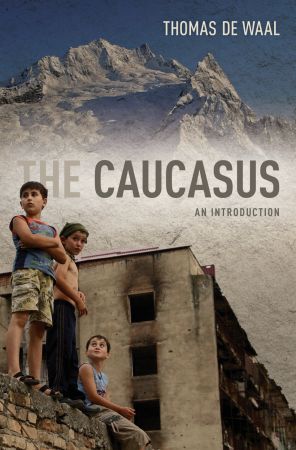19 December 2012
Book review: The Caucasus by Thomas de Waal
 The Caucasus — an introduction
The Caucasus — an introduction
Thomas de Waal
Oxford University Press, New York
August 2010
272 pages
ISBN: 978-0-1953-9976-9
It is always possible to find fault with a book if only one makes an effort. In the case of The Caucasus, Thomas de Waal's new book, the most serious issue thus revealed is an off-hand remark about Abkhazia's 2004 Presidential election. The author states that this "did not involve its Georgian population", which is inaccurate, because unlike in the later elections of 2009 and 2011, the Georgian residents of the Gali District actually did participate. The reason why this is even worth bringing up here is that in the ensuing post-election crisis, the question whether their participation — without holding Abkhazian citizenship — was constitutional constituted the principal legal challenge against the narrow victory of opposition candidate Sergei Bagapsh. Moreover, it is probably not an exageration to say that he would not have won without the Georgian vote.
If pressed further, one quickly enters the realm of the trivial, which to bring up would not do The Caucasus justice. In fact, throughout the book, Thomas de Waal's extensive knowledge of the region is apparent as he lays connections and interjects delightful bits of extra information, like the wonderful anecdote that one member of the Georgian Mkhedrioni described it as a 'paramilitary charity organisation'.
The book can be said to consist of two parts. The first three chapters give a very good overview of the history of the South Caucasus — the first chapter is devoted to the pre-Russian period and the development of the regions' major religions and nations, the second to the period that the South Caucasus formed part of the Russian Empire and the third to the Soviet period. The second part of the book covers political developments since the unravelling of the Soviet Union, with two chapters on Georgia and its conflicts with South Ossetia and Abkhazia, a chapter covering Armenia, Azerbaijan and the Nagorno Karabakh conflict and a chapter about Energy politics.
Specific topics as diverse as wine, Rustaveli Avenue and Baku Jazz are fleshed out in dedicated sections throughout the main text. Controversial subjects like the Armenian Genocide, Stalin and the August 2008 War are treated deftly and with a lot of nuance. Furthermore, De Waal demonstrates that after the death of Stalin, the Soviet Union was not the totalitarian, uniform dictatorship it is commonly believed to have been, as street protests were not uncommon and local governments did in fact determine local policy, with nationalism playing a significant role — historians propagated their nation's version of history and thousands of people migrated — Armenians from Tbilisi to Armenia, Azeri from Armenia to Azerbaijan.
Overall, there are only two minor things left to remark, which Thomas de Waal may have had no control over. Firstly, the title, which is too general (and incidentally, exactly identical — subtitle included — to the October 2009 book by Frederik Coene reviewed earlier), because Thomas de Waal has limited himself to the history and the politics of the South Caucasus — a legitimate choice in itself. Even if simplicity was the primary aim behind the title, one could have simply chosen The South Caucasus — An Introduction.
Secondly, the book contains a number of small editorial mistakes. Frankly, this comes off as unprofessional for what is a major publication. Curiously, the mistakes start to appear only in the fourth chapter, as if error-checking had stopped there.
Neither of these issues should distract from the fact that The Caucasus is a wonderful book, which confirms Thomas de Waal's stature as a leading expert on the region.